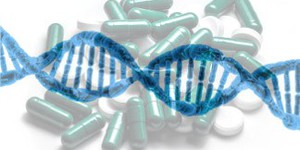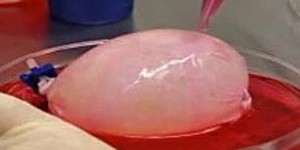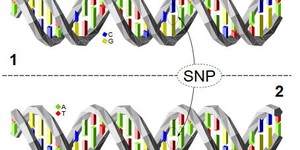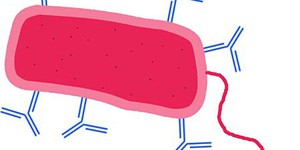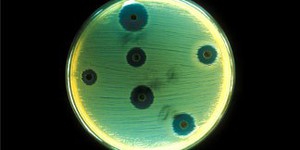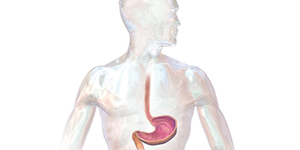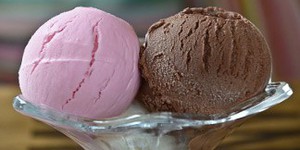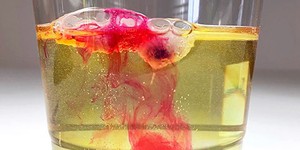Medical Biotechnology Science Projects (22 results)
You already know that medicines like antibiotics and aspirin can make you feel better when you are sick, but how do researchers find new medicines? Do medications work the same way for everyone? How can we use medicine to treat genetic diseases?
|
Select a resource
Sort by
|
Does your skin get dry? Or do you know someone with dry skin? Dry skin can be a real medical problem for some people. You may have seen many kinds of lotions, creams, and ointments advertised as restorative for dry skin, especially dry hands. But how well do they work? And which ingredients are most important in making them work? In this science project, you will create a model of human skin using JELL-O® and test how well skin moisturizing products with different ingredients keep the…
Read more
Featured
Have you heard that garlic powder is supposed to inhibit the growth of bacteria? Which do you think would make a better disinfectant: a solution of garlic powder or a solution of bleach? This project shows you a straightforward way to compare the effectiveness of different disinfectants (or other antimicrobial agents), by measuring zones of inhibition on a culture plate.
Read more
Police detectives use various scientific tools to analyze evidence at a crime scene. One of the classic tools is the Kastle-Meyer test for the presence of blood. This test is inexpensive, easy to perform, and provides quick results. The test provides evidence if red spots found at a crime scene are actually blood. But the investigator needs to be careful, since other substances can also give a positive result. In this crime scene chemistry science project, you will learn how to perform the…
Read more
New
If someone asks you to draw a picture of a doctor, lawyer, or engineer, what first pops into your mind? The race and gender of the person you imagine might be shaped by your personal life experiences, such as whether you have family members in those professions, or what representations of them you have seen on TV or online. What do you think will happen if you ask an artificial intelligence (AI) program to generate the picture instead? Will pictures generated by AI reflect the true real-world…
Read more
In a survey conducted from 2007 to 2010, the U.S. Centers for Disease Control and Prevention reported that about 49% of people in the United States had taken at least one prescription drug during the past month, and about 22% of people had taken three or more prescription drugs. People are prescribed drugs all the time, but prescriptions can be dangerous because people can have different responses to drugs. These responses largely have to do with genetic mutations. Why are some genetic…
Read more
The human kidney is the most commonly transplanted organ in the United States, numbering more than 17,000 transplants in 2010 alone! But kidney transplantation technology faces a lot of challenges, including a shortage of kidney donors and the need for recipients to take immunosuppressant drugs to keep their bodies from rejecting a transplanted kidney. In this science project, with the help of bioinformatics databases, you will explore how a kidney could be bioengineered using stem cells,…
Read more
Our genes are made up of hundreds to millions of building blocks, called DNA nucleotides, and if
just a single nucleotide of DNA becomes mutated it might cause a devastating genetic disease. But
sometimes a mutation actually does no damage. What kinds of mutations have to occur to cause a genetic disease?
In this science project, you will explore online genetic databases to identify how a mutation in a gene
can result in a dysfunctional protein, and how other mutations may have no effect…
Read more
New
Drones are small, fast, and maneuverable - this can make them very hard to knock down! Check out this Mark Rober video where he explores both how professional defense companies and some backyard YouTube engineers tackle the problem of knocking drones out of the sky. Can you take this engineering challenge on yourself? What methods can you devise to take down a drone? Which one works the best?
Drones can be expensive, and you probably do not want to risk damaging a $1,000 drone for your science…
Read more
Being sick is no fun, especially when your friends are doing exciting activities that you have to miss out on. Thankfully, common illnesses usually last for just a few days, and then you start to feel better. Why is this? It is thanks to the immune system, which is a group of special organs and cells in your body that constantly work to keep you healthy. In this science project, you will make a simple model to investigate how the immune system defends the human body from common illnesses, and…
Read more
Antibiotics work by destabilizing the metabolism or cellular structure of bacteria, preventing growth, and causing bacteria to die. Some strains of bacteria have mutated and found a way to resist the actions of antibiotics. These are called resistant strains because they resist the actions of available antibiotic treatments. There are many different types of antibiotics that are continually being developed to combat new strains of resistant bacteria. Some antibiotics work better on different…
Read more
Have you ever experienced heartburn after eating a large, greasy meal? Or have you heard of someone complaining about heartburn pains? It's very common; over 60 million people in the U.S. have heartburn at least once every month. Heartburn pain usually results from stomach acids escaping from the stomach and irritating the esophagus above it. Luckily, there are medical drugs, called antacids, which can help relieve heartburn pain. But how do antacids work, and how effective are they? In this…
Read more
What do pizza, milk shakes, and ice cream sundaes have in common, besides being delicious and loaded with calories? You might be surprised to learn that these foods, because they contain dairy products, cannot be eaten by the majority of people around the world. Dairy products contain the sugar molecule lactose, and the majority of people on the planet slowly begin to lose the ability to digest lactose after the age of 2. In this human biology and health science fair project, you will…
Read more
A lot of medication comes in the form of pills that you need to swallow. But not all pills are the same! Some look like little capsules, others are made of pressed powder. Why are there different types of pills? Different types of pills release their active ingredients in different ways. Some release their active ingredient right after initial administration. Others release their active ingredient much later. Such drugs are called delayed-release drugs. These kinds of pills have to be…
Read more
|
Explore Our Science Videos
Slippery Slopes - STEM activity
Explore the Wet Sand Effect – STEM activity
Video: Paper Airplane Launcher







